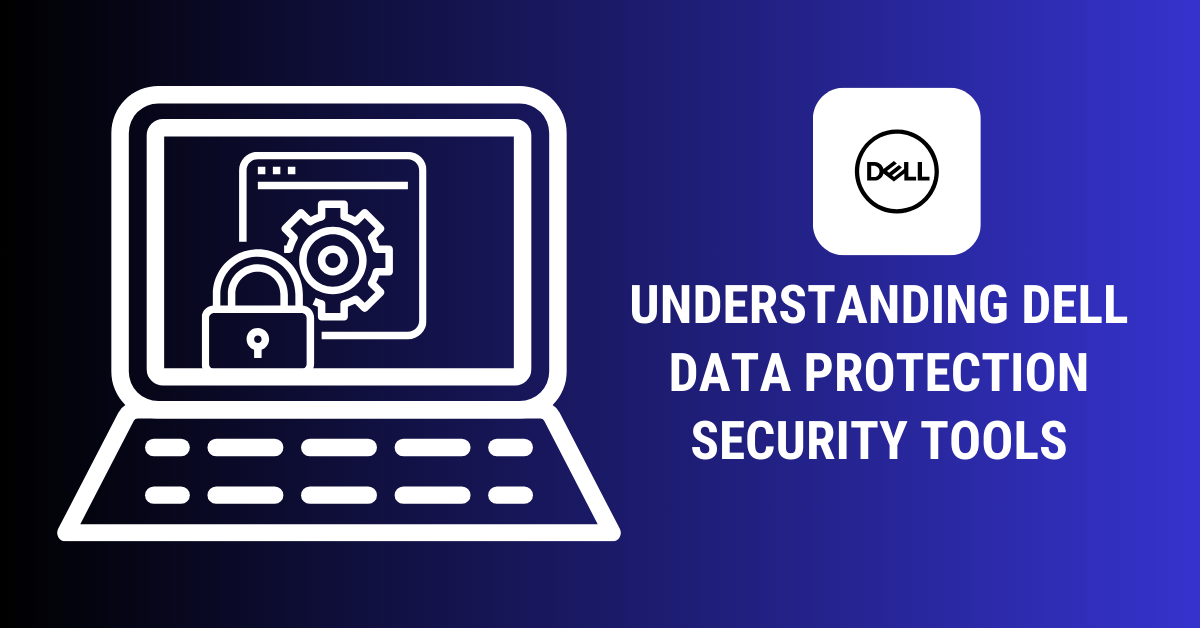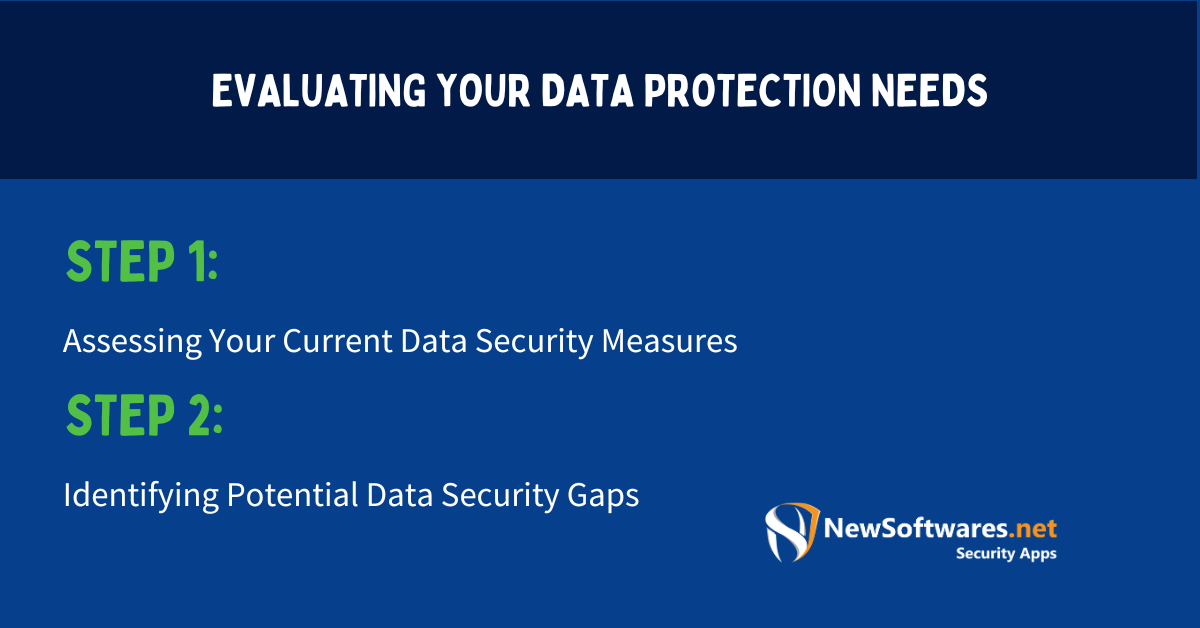Whether you need Dell Data Protection Security Tools depends on your security needs, device model, and data type you handle. For many Dell users, it’s a valuable layer of protection.
In an era where data is more valuable than ever, the question arises- Do you need Dell Data Protection Security Tools? My guide aims to provide an in-depth look at Dell Data Protection Security Tools, their importance, functionality, and application in different business scenarios.
Understanding Dell Data Protection Security Tools

Dell Data Protection Security Tools is a set of security solutions designed by Dell’s computer technology company. They aim to help businesses secure their data and protect their sensitive information due to increasing cybersecurity threats.
In today’s digital age, data breaches have become a substantial concern for businesses of all sizes. Cybercriminals constantly evolve their tactics, making it crucial for organizations to have robust security measures. Dell Data Protection Security Tools offer a comprehensive solution to address these challenges.
With the ever-increasing amount of sensitive data being stored and transmitted electronically, encryption plays a vital role in safeguarding information. Dell Data Protection Security Tools provide advanced encryption capabilities, ensuring that data remains secure even if it falls into the wrong hands. This encryption technology uses complex algorithms to encode data, making it virtually unbearable for unauthorized persons to access or decipher.
What are Dell Data Protection Security Tools?
Dell Data Protection Security Tools offer comprehensive data protection solutions. These include encryption, advanced authentication, and leading-edge threat prevention capabilities that ensure enterprise-grade security for data.
From detecting malware activity to helping businesses remain compliant with various industry regulations, these tools are built to provide a strong line of defense against potential data breaches.
One of the key components of Dell Data Protection Security Tools is advanced authentication. In addition to traditional username and password combinations, these tools offer multi-factor authentication options. Users must provide other proof of their identity, such as a fingerprint scan or a OTP sent to their mobile device. This extra layer of security significantly diminishes the risk of unauthorized access to sensitive data.
Key Features of Dell Data Protection Security Tools
Dell Data Protection Security Tools encompass several key features to ensure holistic data protection. With advanced threat prevention, they focus on keeping data secure from malware and phishing attacks, and powerful encryption shields sensitive information from potential threats.
Furthermore, these tools provide solutions for effective management of system security. It allows businesses to maintain a firm grip over their data protection systems, making data security a more manageable task.
Another important feature of Dell Data Protection Security Tools is their ability to help organizations comply with industry regulations. Depending on the sector in which a business operates, specific data protection requirements may need to be met. These tools offer functionalities that assist in meeting these compliance standards, ensuring that businesses avoid penalties and reputational damage.
In conclusion, Dell Data Protection Security Tools is a complete suite of security solutions that help businesses protect their valuable data. By offering advanced encryption, multi-factor authentication, and powerful threat prevention capabilities, these tools provide a robust line of defense against cyber threats. With the ability to assist with compliance and effective system management, Dell Data Protection Security Tools are essential to any organization’s security strategy.
Importance of Data Protection
The importance of data protection cannot be overstated in today’s data-driven world. With businesses heavily relying on digital data, protecting it has become paramount for sustained operation and growth.
Data protection goes beyond simply implementing security measures. It encompasses a comprehensive approach to safeguarding sensitive information, ensuring its confidentiality, integrity, and availability. This includes protecting data from unauthorized access, accidental loss, and malicious attacks.
Effective data protection measures are necessary to maintain the faith and self-assurance of customers, partners, and stakeholders. In an era where data breaches are increasingly common, organizations prioritizing data protection demonstrate their commitment to safeguarding the privacy and security of individual’s personal information.
Why is Data Protection Necessary?
Data protection is essential for businesses as it prevents data breaches that could potentially jeopardize a company’s reputation. It protects companies against financial losses and ensures legal compliance.
Imagine a data breach’s consequences: customer information exposure, financial records compromised, and trade secrets leaked. The impact on a company’s brand image and customer loyalty can be devastating. Therefore, investing in robust data protection measures is a proactive approach and a necessity for long-term success.
Data protection safeguards crucial business information from falling into the wrong hands. It ensures that sensitive data, such as intellectual property, financial data, and proprietary business strategies, remains confidential and protected from competitors and malicious actors.
Data protection also builds customers’ trust as they feel assured that their personal and sensitive information is secure. When individuals provide their data to a company, they expect it to be handled responsibly and with the utmost care. Businesses can instill customer confidence by implementing robust data protection measures and fostering long-term trust-based relationships.
The Role of Data Protection in Business
At a strategic level, data protection plays a critical role in business continuity. By securing data assets, businesses can prevent interruptions related to data breaches and reduce the risk associated with business operations.
Consider the impact of a data breach on a company’s day-to-day operations. Critical systems may become compromised, resulting in downtime, loss of productivity, and financial losses. Businesses can mitigate these risks by prioritizing data protection and ensuring uninterrupted operations.
Data protection also plays a vital part in ensuring regulatory compliance. Today, businesses must comply with a wide range of rules requiring them to protect customer data diligently. Noncompliance can lead to significant penalties, legal consequences, and reputational damage.
Moreover, data protection can provide businesses with a competitive advantage. In a marketplace where customers are increasingly aware of data privacy and security concerns, organizations prioritizing data protection can distinguish themselves from their contestants. Businesses can attract and retain clients who value their privacy by demonstrating a commitment to protecting customer data.
In conclusion, data protection is not just a buzzword but a fundamental aspect of modern business operations. By implementing robust data protection measures, businesses can safeguard sensitive information, build customer trust, ensure regulatory compliance, and maintain a competitive edge in today’s data-driven world.
Evaluating Your Data Protection Needs

Understanding your data protection needs is the first step toward establishing an effective data security strategy. It allows a business to align its cybersecurity measures with its business objectives.
Data protection is a critical aspect of any organization’s information security framework. It safeguards sensitive data from unauthorized access, use, disclosure, disruption, modification, or destruction. To ensure comprehensive data protection, businesses must assess their current data security measures and identify potential gaps.
Assessing Your Current Data Security Measures
Assessing current data security measures helps understand the existing system’s effectiveness in combating various cybersecurity threats. It allows for identifying potential vulnerabilities and stepping up defenses where necessary.
During this assessment, businesses should consider the variety of data they handle, the sensitivity of the information, and the potential threats they encounter. It is crucial to evaluate the adequacy of technical controls, such as firewalls, encryption, access controls, and intrusion detection systems, as well as organizational controls, such as policies, procedures, and employee training.
Furthermore, conducting regular security audits and penetration testing can provide valuable insights into the effectiveness of data security measures. These assessments help identify any weaknesses or gaps in the system, enabling organizations to take proactive measures to mitigate risks.
Identifying Potential Data Security Gaps
Identifying potential data security gaps is important in evaluating data protection needs. These areas within your information security system could be exploited to gain unauthorized access to sensitive data.
Identifying these gaps requires a comprehensive understanding of your business activities and a thorough analysis of your existing data security measures. It is essential to assess the effectiveness of access controls, authentication mechanisms, network security, data backup and recovery processes, incident response plans, and employee awareness and training programs.
Moreover, organizations should consider external factors impacting data security, such as emerging technologies, evolving regulatory requirements, and industry best practices. By staying updated with the latest trends and potential threats, businesses can proactively address any vulnerabilities and strengthen their data protection measures.
Regular risk assessments and vulnerability scans can help identify any weaknesses in the data protection framework. These assessments can be conducted internally or by engaging third-party cybersecurity experts specializing in identifying and mitigating data security risks.
Overall, evaluating your data protection needs requires a comprehensive and proactive approach. By assessing current data security measures and identifying potential gaps, organizations can develop robust strategies to protect their valuable data assets and maintain the trust of their stakeholders.
Dell Data Protection Security Tools in Action
When it comes to protecting your data, seeing is believing. The effectiveness of Dell Data Protection Security Tools is best illustrated through real-life case studies and user experiences.
Case Studies of Dell Data Protection Security Tools
Numerous businesses globally rely on Dell Data Protection Security Tools for their data protection needs. These companies range from small enterprises to large multinational corporations across various industries.
Case studies reveal that these businesses significantly improved their data security, maintained compliance with industry regulations, and protected customer information effectively after implementing Dell’s security tools.
User Reviews and Feedback
User feedback on Dell Data Protection Security Tools reflects their usefulness in data security. Customers appreciate the comprehensive security measures, ease of use, and effective data protection.
Though every solution may have minor drawbacks, user responses suggest that the benefits outweigh these issues. Overall, the feedback indicates satisfaction with Dell’s offerings in data security.
Comparing Dell Data Protection Security Tools with Other Security Solutions
With many security solutions available in the market, it’s essential to understand how Dell Data Protection Security Tools stack up against other leading tools.
Dell vs. Other Leading Data Protection Tools
Dell’s offerings stand out due to its comprehensive protection capabilities and ease of management. While other security solutions may provide similar protection capabilities, Dell edges out in terms of integrating its tools into business processes.
Although your choice of data protection tools ultimately hinges on your specific needs, Dell’s offerings are worth considering for their all-around capabilities.
Pros and Cons of Dell Data Protection Security Tools

The advantages of Dell’s tools include robust security measures, ease of use, and the ability to provide comprehensive data protection. They have a proven track record with businesses across various industries.
However, they may not be suitable for every business. For instance, small businesses with limited data security needs may find these tools too sophisticated for their requirements. Therefore, evaluating your data protection needs thoroughly is crucial before deciding.
Key Takeaways
- Dell Data Protection Security Tools provide enhanced security features for Dell devices.
- It includes tools for encryption, authentication, and malware protection.
- Ideal for businesses and users handling sensitive information.
- Not all Dell models may support or require these tools.
- Regularly evaluate your security needs to determine its necessity.
5 FAQs
Q: What is the primary purpose of Dell Data Protection Security Tools?
A: To provide enhanced security features such as encryption and authentication for Dell devices.
Q: Are these tools suitable for personal use?
A: Yes, especially if you handle sensitive personal information or want additional security.
Q: Is it a subscription-based service?
A: This depends on Dell’s exact offering and terms, and users should refer to Dell’s official resources for details.
Q: Can I use alternative security tools?
A: Yes, many third-party security tools are available, but ensure compatibility with your device.
Q: Do these tools slow down the system’s performance?
A: While there might be a slight performance impact, it’s usually negligible compared to the security benefits provided.
Conclusion
In conclusion, whether you need Dell Data Protection Security Tools depends entirely on your business needs. However, given the increasing cybersecurity threats and the importance of data protection, it is worth considering adding it to your security arsenal.
